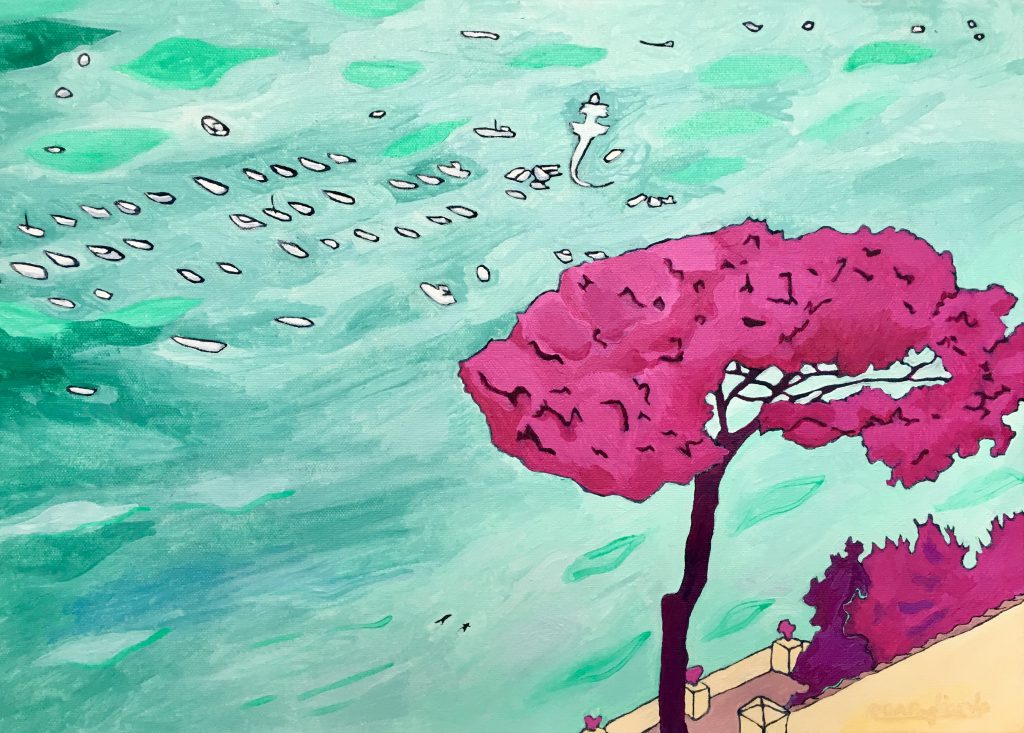Charlotte Pratley initially thought that she wanted to be an artist and studied Fine Art at Nottingham Trent University. After graduating, she found herself drawn less to creative practice than she was to organising cultural events. She began to curate her own exhibitions, run artists’ studios and managed an arts festival with fellow graduates. It is this entrepreneurial spirit which made Charlotte create her own opportunities within the art world, and she suggests that all graduates should be doing the same, especially given the current cuts across the arts. She also stresses the crucial competencies that she learnt working in non-arts jobs: she developed customer service, organisation and events skills from part-time work in pub.
“Be proactive: if you want to be a curator, ask a café or a library if you can hold an exhibition in their space”.
Charlotte’s Big Break
From the skills Charlotte developed in these multiple freelance projects, she got her first museum job as an Exhibition Assistant at Lakeside Arts Centre in Nottingham. In fact, Charlotte wasn’t offered the job straight away. During the interview process she came second. However, she had recently written an article about the museum’s Director for a Nottingham arts magazine, which he remembered. So, not long afterwards, she was called in and offered a position in the organisation. At Lakeside Arts Centre she looked after the programme of exhibitions, carried out front of house duties and also worked as a technician. Charlotte explains that working in smaller organisations lets you try out various roles, and work with lots of departments, whilst discovering where you best fit.
“I took tiny steps towards becoming an arts professional”.
Do you need a Masters to work in museums?
Whilst working at Lakeside Arts Centre, Charlotte also studied part-time on the Master of Arts (MA) Museum & Heritage Management at Nottingham Trent University. For many arts students looking for a career in the art world, the question “should I do a Masters in Art history or Museum Studies” is a pressing one. Charlotte explains that “you can climb the art world ladder without an MA, but it can be a good way to fast-track yourself. However, it is not enough in itself; it is crucial that it is combined with work experience”.
Culture Syndicates
It was following her MA, which she completed in 2013, that Charlotte joined the newly established Culture Syndicates. Based at Nottingham Trent University, Culture Syndicates is a heritage consultancy, which provides specialist advice and assistance to heritage organisations, from small, voluntary-run museums to Local Authority sites and large independent organisations. Since joining, Charlotte has built the business up. Charlotte is now 1 of 2 active Directors, focusing on the Development side to the business, which is growing rapidly, and now has around 20 staff with a turnover of £130,000 per annum.
Staff at Culture Syndicates work on an exciting range of projects, and are currently reviewing a collection of homeopathic objects from the British Homeopathic Association in Luton, which includes wonderful objects from photographs and booklets to beautifully crafted boxes of corked vials.
Culture Syndicates use live projects with museums to provide paid training opportunities for sector entrants. They frequently take on paid interns, and Charlotte says that it is important for students and recent graduates to see how an arts business is run, which can include tedious admin alongside glamorous gallery openings! In this case, they are being trained to handle objects, and assess the condition of them. Charlotte doesn’t agree with the over-reliance on volunteers across arts organisations, and instead believes that museums should have a more diverse workforce, and open their doors to employees from all walks of life, regardless of financial backgrounds.

A changing sector requires new skills
Charlotte also strongly believes that the cultural sector and industry is “moving towards a consultancy-based approach”. She recommends that students be prepared to “be fleet of foot, be prepared to work on short-term contracts and grab the opportunities you can”. She points arts graduates in the direction of a new report, ‘Character Matters’, which explores the attitudes, behaviours and skills which future museum professionals will require. Amongst those needed in museums are digital, leadership, business and management skills.
Her top tips for success
- Be entrepreneurial: get out there and create your own opportunities in the arts
- Be flexible: don’t rely on permanent jobs and be prepared to move around. Contracts can often be short-term and you shouldn’t be put off by this.
- Network: Building up your reputation and networking is crucial. I find clients for Culture Syndicates primarily via word of mouth, and networks.
- Reach out: If you want to hear about someone’s job, just email them.
- Plan ahead: Look for jobs ahead of yours and see what skills you will need. LinkedIn is an excellent tool for this.
- Get a mentor: take advice from someone who has already walked in your footsteps.
Her favourite museum?
Charlotte is originally from Oxford and her favourite museum is the Pitt Rivers, which is famed for its remarkable anthropological collections of the University of Oxford, including shrunken heads from South America.


